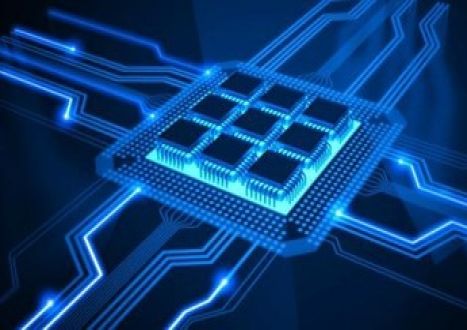- Home
- Video Courses
- Certifications
- JN0-103: Junos, Associate (JNCIA-Junos) Dumps


JN0-103: Junos, Associate (JNCIA-Junos) Certification Video Training Course
JN0-103: Junos, Associate (JNCIA-Junos) Certification Video Training Course includes 67 Lectures which proven in-depth knowledge on all key concepts of the exam. Pass your exam easily and learn everything you need with our JN0-103: Junos, Associate (JNCIA-Junos) Certification Training Video Course.
Curriculum for Juniper JN0-103 Certification Video Training Course








JN0-103: Junos, Associate (JNCIA-Junos) Certification Video Training Course Info:
The Complete Course from ExamCollection industry leading experts to help you prepare and provides the full 360 solution for self prep including JN0-103: Junos, Associate (JNCIA-Junos) Certification Video Training Course, Practice Test Questions and Answers, Study Guide & Exam Dumps.
JN0-103 Practice Questions for JNCIA-Junos Exam
JNCIA-Junos JN0-103 Training Course Overview
The JNCIA-Junos JN0-103 certification serves as an essential foundation for networking professionals seeking to validate their knowledge of Juniper Networks Junos OS and fundamental networking concepts. This course is designed to equip learners with the skills required to configure and operate Junos devices in a production environment. The course overview aims to provide a comprehensive insight into the structure, objectives, and scope of this training, ensuring that learners understand what to expect and how to prepare.
Juniper Networks has established itself as a leader in network technology, and the JNCIA-Junos certification represents a critical step in mastering Junos OS, which powers a wide range of Juniper devices. This course begins by introducing the Junos OS architecture and gradually progresses to advanced routing and switching concepts, security features, and troubleshooting methods. The goal is to make students comfortable navigating the Junos command-line interface (CLI), configuring essential network protocols, and understanding the core principles behind Juniper networking.
By completing this course, students gain practical knowledge that directly applies to real-world networking scenarios. They will learn how to perform basic device configuration, understand routing fundamentals such as OSPF and BGP, and manage network security features. This knowledge empowers network engineers to design, implement, and troubleshoot Junos-based networks efficiently, which is a valuable asset in today’s network operations centers.
This training also serves as a stepping stone for higher-level Juniper certifications. Those interested in advancing their expertise in network design, security, or automation can build upon this foundation. The course is structured to accommodate learners with varying levels of experience, from newcomers in networking to seasoned professionals transitioning to Juniper technology.
Course Objectives and Learning Outcomes
The primary objective of this course is to prepare students to successfully pass the JNCIA-Junos JN0-103 certification exam. It accomplishes this by focusing on key areas that reflect the exam’s domains, ensuring a thorough understanding of Junos OS fundamentals. Throughout the training, learners will develop critical skills, including configuring interfaces, managing routing protocols, and implementing basic security measures.
One of the major outcomes is the ability to navigate and manipulate the Junos CLI with confidence. Students will understand the operational modes, configuration hierarchy, and the commit process. This skill is vital for all subsequent Juniper certifications and day-to-day operations.
Another core learning outcome is the comprehension of Layer 2 and Layer 3 networking principles as they apply to Junos devices. Students will delve into concepts such as VLANs, routing tables, and next-hop calculations, equipping them to make informed decisions when designing and maintaining networks.
Security awareness is also integrated into the curriculum. Students will explore firewall filters and security zones, allowing them to protect network resources effectively. Understanding these concepts is increasingly important as networks become more complex and security threats more prevalent.
Additionally, learners will acquire troubleshooting skills that help diagnose and resolve common network issues. These practical abilities enhance operational efficiency and minimize downtime.
Upon completing this course, students will not only be prepared to take the certification exam but will also possess a skill set that is highly relevant to modern network environments where Juniper devices are deployed.
Course Modules Overview
The training is organized into several comprehensive modules that sequentially build knowledge and skills. Each module focuses on specific topic areas essential for the JNCIA-Junos JN0-103 exam and practical Junos OS administration.
Module 1: Introduction to Junos OS and Networking Fundamentals
This module lays the groundwork by introducing students to the Junos operating system, its architecture, and the basics of networking. Learners will understand the advantages of Junos OS, its modular design, and the processes running within the system. Foundational networking concepts such as the OSI model, TCP/IP protocol suite, and Ethernet basics are covered to ensure everyone starts on the same page.
Module 2: Navigating and Operating the Junos CLI
The second module delves into the Junos command-line interface, which is the primary means of interacting with Juniper devices. Students will learn the operational and configuration modes, syntax conventions, and ways to verify system status. Emphasis is placed on mastering the commit process and understanding configuration hierarchy, rollback features, and basic system commands.
Module 3: Configuring Interfaces and Layer 2 Switching
In this module, the focus shifts to configuring physical and logical interfaces, including Ethernet and VLAN interfaces. Learners will explore Layer 2 switching concepts such as VLAN tagging, Spanning Tree Protocol (STP), and link aggregation. This knowledge is crucial for building reliable and scalable LAN environments using Junos OS.
Module 4: Routing Fundamentals and Protocols
Routing concepts are central to this module, covering static routing, dynamic routing protocols like OSPF and RIP, and fundamental BGP operations. Students will configure and verify routing protocols, learn how route selection works, and understand how to manage routing tables effectively. The module also touches on route filters and policies that influence routing decisions.
Module 5: Network Security Basics
Security is a vital component of modern networks, and this module introduces firewall filters, security zones, and access control lists (ACLs). Students will learn to create and apply filters to control traffic flow, protect network segments, and ensure secure communication across the network infrastructure.
Module 6: Monitoring and Troubleshooting Junos Devices
Troubleshooting skills are essential for network engineers, and this module equips students with the tools and techniques needed to identify and resolve network issues. Topics include logging, tracing routes, monitoring system performance, and interpreting diagnostic commands to pinpoint problems efficiently.
Module 7: Exam Preparation and Practice
The final module focuses on exam readiness, providing sample questions, review sessions, and practical labs. Learners will revisit key concepts and participate in scenario-based exercises designed to simulate the certification exam environment. This module ensures confidence and readiness for the JNCIA-Junos JN0-103 test.
The Importance of Hands-On Practice
Throughout the course, practical experience is emphasized alongside theoretical knowledge. Students are encouraged to work on lab exercises that simulate real network configurations and troubleshooting scenarios. This hands-on approach reinforces learning and builds confidence in managing Juniper devices.
Using virtual labs or physical Juniper hardware, learners can apply commands, test configurations, and observe the effects in real time. This experiential learning bridges the gap between knowledge and application, a critical factor in passing the certification exam and succeeding in network engineering roles.
Summary of Course Overview
In summary, the JNCIA-Junos JN0-103 training course is a carefully structured program that blends networking fundamentals with Junos OS expertise. It provides a balanced mix of theory, practical skills, and exam preparation to ensure comprehensive learning. The modular design facilitates step-by-step skill development, making it accessible and effective for individuals aiming to build a solid foundation in Juniper networking technologies.
Detailed Modules Description
Module 1: Introduction to Junos OS and Networking Fundamentals
This opening module begins with a detailed exploration of the Junos OS architecture. Learners discover how Junos is built on FreeBSD, offering a modular design that enhances stability and scalability. The distinction between the control plane and forwarding plane is explained, emphasizing the separation of routing processes from packet forwarding.
Networking fundamentals are introduced in parallel to ensure all participants share a common understanding. Concepts such as IP addressing, subnetting, and the role of various protocols within the TCP/IP stack are examined. This foundational knowledge is crucial for grasping more advanced networking topics later in the course.
Module 2: Navigating and Operating the Junos CLI
Navigating the Junos CLI is an essential skill that this module develops. The training covers operational commands used for monitoring device status, configuration mode commands for setting up device parameters, and utility commands for managing system operations.
Students learn how to navigate different CLI modes, use command shortcuts, and leverage context-sensitive help. The configuration hierarchy is discussed in detail, illustrating how configurations are organized and applied. The commit process, which finalizes configuration changes, is examined thoroughly to avoid common pitfalls.
Module 3: Configuring Interfaces and Layer 2 Switching
Interfaces serve as the gateway between devices and networks. This module teaches how to configure physical interfaces such as Gigabit Ethernet and logical interfaces including VLANs and loopback interfaces. The importance of interface status and speed settings is highlighted.
Layer 2 switching fundamentals are addressed, including VLAN creation, trunking, and STP operation. Students understand how Junos OS handles Ethernet switching and the role of spanning tree in preventing loops. Link aggregation and redundancy techniques are introduced to promote network resilience.
Module 4: Routing Fundamentals and Protocols
Routing is a core function in networking, and this module provides an in-depth view of static and dynamic routing mechanisms. Static routes are configured first, illustrating how manual route entries direct traffic. Dynamic protocols like OSPF and RIP are then introduced, focusing on their operational characteristics and configuration steps.
Basic BGP concepts are also covered, providing an overview of how Junos handles inter-domain routing. Route preferences, metrics, and route filtering are explored, equipping students to manipulate routing behavior for optimized network performance.
Module 5: Network Security Basics
This module introduces the fundamentals of securing Juniper networks. Firewall filters are explained as packet-filtering mechanisms used to permit or deny traffic. Security zones and their application in segmenting network areas are covered.
Students learn how to apply security policies, manage user access, and understand the importance of network segmentation in defense strategies. The module also touches on basic VPN concepts as part of network security awareness.
Module 6: Monitoring and Troubleshooting Junos Devices
Effective network management requires continuous monitoring and swift troubleshooting. This module delves into system logs, alarms, and diagnostic commands such as ping and traceroute. Students learn to interpret output and identify issues related to interface status, protocol operation, and resource utilization.
Troubleshooting methodologies are presented, encouraging a systematic approach to problem-solving. The role of Junos tools like the Operational Commands and Debugging utilities is highlighted.
Module 7: Exam Preparation and Practice
The concluding module ensures learners are well-prepared for the certification exam. It includes mock exams, review of frequently asked questions, and hands-on labs. Time management strategies and test-taking tips are discussed to reduce anxiety and improve performance.
Students are encouraged to revisit challenging topics and engage with interactive study groups or forums to deepen understanding and clarify doubts.
Requirements of the JNCIA-Junos JN0-103 Training Course
Understanding the prerequisites and requirements for the JNCIA-Junos JN0-103 training course is essential for prospective students. This section outlines the technical knowledge, skills, resources, and time commitments needed to successfully engage with the course material and achieve certification.
Technical Background and Knowledge Prerequisites
The JNCIA-Junos certification is an entry-level networking credential, but having some foundational knowledge in networking principles greatly benefits students. While there is no mandatory prerequisite certification or course to enroll, it is highly recommended that learners possess basic familiarity with general networking concepts before starting.
A grasp of the OSI model and TCP/IP stack concepts provides an excellent base for understanding how Junos OS interacts with network layers and protocols. Basic knowledge of Ethernet networking, IP addressing, and subnetting is also very useful to comprehend device configuration and routing fundamentals presented throughout the training.
For learners without any networking background, it may be beneficial to complete introductory networking courses or self-study materials to build a conceptual framework. This preparation can enhance comprehension and reduce the time needed to absorb more complex Junos-specific topics.
Understanding the Junos Operating System
Because the JNCIA-Junos exam focuses heavily on the Junos OS, familiarity with its unique architecture and operational principles is necessary. The Junos OS is distinct from other network operating systems due to its modularity, separation of control and forwarding planes, and the use of a single OS image for all Juniper devices.
Though the course covers the architecture in detail, students benefit from prior exposure to the Junos CLI environment. Hands-on experience with basic commands, configuration modes, and navigation of the CLI structure significantly improves learning efficiency.
Students without access to physical Juniper devices can use virtualized environments such as Juniper vLabs or Junosphere to practice Junos OS configurations. This exposure helps in understanding command syntax, configuration workflows, and troubleshooting commands.
Hardware and Software Requirements
To maximize the benefits of this course, students should have access to appropriate hardware or software simulators. While physical Juniper routers or switches provide the most authentic learning experience, virtual labs offer practical alternatives that can be accessed remotely.
For physical lab environments, Juniper Networks offers various devices such as the SRX series firewall, EX series switches, and MX series routers that run Junos OS. These devices allow real-world configuration and operational practice.
For virtual environments, platforms like Juniper vLabs or third-party simulators provide fully functional Junos OS instances. These can be installed on personal computers or accessed via cloud services, enabling students to perform exercises anywhere and anytime.
Students need a computer capable of running these virtual labs smoothly, typically requiring a modern multi-core processor, 8GB or more of RAM, and stable internet connectivity for remote labs.
Software Tools and Utilities
Beyond hardware, several software tools support the learning and practice process. A secure terminal emulator such as PuTTY, SecureCRT, or OpenSSH is necessary for accessing the Junos CLI over SSH or console connections.
Additionally, network simulation tools like GNS3 or EVE-NG can integrate Junos images, providing an advanced lab environment for building complex network topologies. These tools enhance practical skills and prepare learners for real-world networking challenges.
Text editors with syntax highlighting, such as Notepad++ or VSCode, facilitate writing and reviewing configuration files. These editors help students spot syntax errors and organize configuration scripts efficiently.
Time Commitment and Study Plan
The JNCIA-Junos training course requires a dedicated time commitment for studying theory, completing hands-on labs, and reviewing exam material. While the total time varies depending on prior knowledge and learning pace, a typical preparation period ranges from six to eight weeks when studying part-time.
Students are advised to allocate regular daily or weekly sessions to maintain consistency and retention. Breaking down study goals by module or topic can improve focus and reduce overwhelm.
Incorporating hands-on practice after each theoretical segment reinforces understanding. This practical application consolidates knowledge and develops the confidence required for troubleshooting.
Allocating time for review and mock exams towards the end of the study plan is crucial. This phase highlights areas needing improvement and familiarizes students with exam-style questions and time constraints.
Recommended Learning Resources
To support the training course, learners should gather a variety of study materials. Juniper Networks provides official documentation, including the Junos OS Technical Documentation and configuration guides, which are valuable references for in-depth understanding.
Supplementary books and guides focused on JNCIA-Junos exam preparation can offer structured explanations and practice questions. Titles from reputable authors or publishers specializing in Juniper certifications are recommended.
Online video tutorials and courses provide visual and auditory learning modes. These resources often include demonstrations, labs, and quizzes to reinforce concepts.
Community forums, study groups, and discussion boards dedicated to Juniper certifications offer additional support. Engaging with peers can clarify doubts, share experiences, and motivate progress.
Language and Communication Skills
Since the training course and certification exam are typically conducted in English, proficiency in technical English is important. Understanding networking terminology, command syntax, and exam questions depends heavily on language comprehension.
Non-native English speakers may benefit from additional language support or glossaries focused on networking terms to ensure full understanding.
Effective communication skills are also valuable for documenting configurations, writing reports, and collaborating in professional environments, which this course indirectly supports.
Physical and Environmental Considerations
A conducive learning environment improves focus and retention. Students should prepare a quiet, well-lit workspace free from distractions for study and lab activities.
Reliable internet access is essential for accessing online materials, virtual labs, and communication platforms.
Using multiple monitors or split-screen setups can enhance productivity, allowing students to view documentation while practicing configurations.
Comfortable seating and ergonomic arrangements support longer study sessions without physical strain.
Instructor and Peer Support
While self-paced learning is possible, students benefit greatly from instructor-led training or mentorship. Professional instructors provide structured guidance, clarify complex topics, and offer real-time feedback.
Access to a community of peers encourages discussion, sharing of insights, and collaborative problem-solving.
Many official Juniper training programs include support forums and direct contact with trainers, enhancing the learning experience.
Certification Exam Prerequisites
To sit for the JNCIA-Junos JN0-103 certification exam, candidates must register through authorized Juniper testing centers or online platforms. There are no formal prerequisites for the exam, but successful completion of this course significantly increases the chances of passing.
Candidates should verify exam registration procedures, fees, and policies before scheduling the test. Awareness of exam formats, question types, and time limits helps in strategizing test-taking.
Ethical and Professional Standards
While not a formal requirement, candidates are encouraged to uphold high ethical standards during preparation and testing. Avoiding unauthorized materials or cheating ensures the integrity of certification and personal credibility.
Developing a professional mindset and commitment to continuous learning fosters long-term success beyond certification.
Course Description of the JNCIA-Junos JN0-103 Training Program
The JNCIA-Junos JN0-103 training program is a comprehensive learning experience designed to provide foundational knowledge and practical skills in Juniper Networks’ Junos operating system and core networking concepts. The course covers a wide range of topics that prepare learners for the JNCIA-Junos certification exam and real-world network environments utilizing Juniper technology.
The training begins by introducing the core components of Junos OS, explaining its architecture and unique design principles that distinguish it from other network operating systems. Learners explore the modular software design, the separation of control and forwarding planes, and how these contribute to the system’s reliability and scalability. The focus on the Junos CLI provides students with hands-on experience navigating and managing Juniper devices effectively.
Building on this foundation, the course dives into networking fundamentals, providing a strong understanding of essential concepts such as Ethernet switching, IP addressing, routing protocols, and network security. Each topic is explored with attention to how it applies specifically to Junos devices, allowing learners to contextualize their knowledge within Juniper’s ecosystem.
The course emphasizes configuring and managing network interfaces, both physical and logical, teaching learners to set up VLANs, trunks, and basic Layer 2 switching functions. Understanding interface configuration is vital for network segmentation and performance optimization in enterprise environments.
Routing protocols constitute a major component of the course. Students learn how to configure static routes, and dynamic protocols such as OSPF and BGP, gaining insight into route selection, metric calculation, and policy implementation. The training covers how Junos OS processes routing information and the tools available for route manipulation.
Security features are integrated throughout the curriculum, with specific focus on firewall filters, security zones, and access control policies. The course explains how to safeguard network segments and control traffic flow, which is critical in today’s environment of increasing cybersecurity threats.
An essential aspect of the training is the development of troubleshooting and monitoring skills. Students are taught to use Junos diagnostic commands, log analysis, and system monitoring techniques to quickly identify and resolve network issues, minimizing downtime and maintaining network integrity.
The program also includes extensive exam preparation, with review sessions, practice questions, and scenario-based labs that simulate the certification test environment. This preparation ensures that learners are not only knowledgeable but also confident in their ability to pass the JNCIA-Junos JN0-103 exam.
Detailed Course Content
The course content is structured to provide progressive learning, starting from fundamental concepts to more advanced configuration and management tasks. Throughout the program, real-world examples and hands-on labs reinforce theoretical knowledge, bridging the gap between study and practical application.
The initial modules cover the Junos OS architecture and the basics of networking, setting a solid foundation. The next sections focus on device operation, including system startup, software management, and the CLI’s command structure. This ensures learners are comfortable with the tools they will use daily.
Interface configuration and Layer 2 switching modules explore the physical and logical aspects of network connectivity. Topics include interface types, VLAN tagging, and link aggregation. This part of the course prepares students to design scalable and efficient LAN environments.
Routing protocol modules cover static routing as well as dynamic protocols like OSPF and BGP. Learners discover how to configure these protocols in Junos OS, understand route attributes, and apply policies to influence routing decisions. These modules are essential for managing both intra- and inter-network communication.
Security modules introduce basic firewall configurations, traffic filtering, and zone-based policies. The course explains how to protect networks from unauthorized access and manage traffic flow securely.
Troubleshooting and monitoring modules teach methods to assess device and network health, including the use of diagnostic commands and log analysis. Learners gain the skills to quickly identify problems and apply corrective measures.
Finally, the course includes dedicated exam preparation modules, featuring sample questions, practice exams, and review of core concepts. These sessions help learners consolidate their knowledge and develop effective test-taking strategies.
Learning Methodology
This course employs a blended learning methodology combining theoretical instruction with practical labs. Interactive lectures, demonstrations, and guided exercises provide a comprehensive learning experience.
Hands-on labs play a crucial role in reinforcing concepts by allowing students to configure and manage Juniper devices in simulated or real environments. This experiential learning ensures that participants can apply knowledge to solve network challenges.
Quizzes and practice tests are integrated throughout the course to assess comprehension and provide immediate feedback. This approach helps learners identify areas needing further review and improves retention.
Collaborative learning is encouraged through discussion forums, group projects, and peer reviews. Interaction with instructors and fellow students enriches the learning process by enabling exchange of ideas and troubleshooting techniques.
Who This Course Is For
The JNCIA-Junos JN0-103 training course is ideal for a variety of networking professionals and enthusiasts who want to build or validate their foundational knowledge of Juniper Networks and the Junos operating system.
Network engineers who are new to Juniper technology and want to establish a career in environments where Junos OS is deployed will find this course invaluable. It provides the essential skills required to manage and troubleshoot Juniper devices effectively.
IT professionals transitioning from other networking platforms to Juniper will benefit from this program as it covers differences in OS design and command-line management, helping them quickly adapt.
Individuals seeking entry-level certification to demonstrate their networking knowledge to employers will appreciate the comprehensive nature of this course. The JNCIA-Junos certification is widely recognized and can open doors to job opportunities in networking.
Technical support staff responsible for Juniper device maintenance and monitoring will gain practical insights that enhance their operational efficiency.
Students and recent graduates looking to specialize in networking technologies and obtain industry-recognized credentials will find the course content aligned with career development goals.
Additionally, professionals interested in advancing to more specialized Juniper certifications, such as JNCIS or JNCIP tracks, can use this course as a stepping stone. It lays the groundwork necessary for deeper exploration of routing, security, and automation topics.
The course is also suitable for system administrators and network managers who need to understand Junos OS fundamentals to collaborate effectively with networking teams and oversee network infrastructure.
Benefits for Different Roles
Network engineers will develop confidence in configuring and troubleshooting Juniper devices, enabling them to contribute to network design and operation.
IT managers can ensure their teams are trained on Juniper platforms, enhancing organizational capability and reducing reliance on external support.
Technical support professionals will improve their problem-solving skills and reduce downtime by mastering Junos diagnostic tools and commands.
Job seekers will enhance their resumes with a well-regarded certification, increasing marketability and salary prospects.
Students gain a practical skill set applicable to internships and entry-level roles, providing a strong foundation for further professional growth.
Career Pathways Enabled by the Course
Completing this course opens pathways to various roles within the networking field. Entry-level positions such as network technician or junior network engineer often require foundational Junos knowledge, which this course provides.
With further experience and certifications, learners can advance to network engineer, systems engineer, or network analyst roles that demand deeper expertise in Junos and networking protocols.
The knowledge gained here also supports career progression into specialized areas like network security, network automation, or cloud networking, where Juniper technology plays a significant role.
For individuals interested in vendor-specific career tracks, this course is the first step towards achieving higher Juniper certifications such as JNCIS (Specialist), JNCIP (Professional), and JNCIE (Expert), which lead to advanced technical positions.
Commitment and Expectations
Prospective learners should expect to engage fully with both theoretical and practical components of the course. Active participation, consistent study habits, and hands-on practice are key to mastering the material.
The course demands time investment and dedication but offers substantial rewards in terms of career opportunities and technical competence.
Students should approach the training with an open mind, willingness to learn, and readiness to apply concepts in practical scenarios.
Summary of Course Description and Target Audience
In essence, the JNCIA-Junos JN0-103 training course is a well-rounded program tailored for anyone aiming to build foundational knowledge of Juniper Networks and the Junos operating system. It combines theory, practice, and exam preparation to equip learners with the skills needed for certification and professional success.
The course serves network engineers, IT professionals, students, and technical support staff by providing a clear pathway into the world of Juniper networking technologies.
With its comprehensive content and hands-on approach, this training enables learners to confidently operate Junos devices, prepare for the certification exam, and advance their networking careers.
Student Feedback
Similar Juniper Video Courses














Only Registered Members Can Download VCE Files or View Training Courses
Please fill out your email address below in order to Download VCE files or view Training Courses. Registration is Free and Easy - you simply need to provide an email address.
- Trusted By 1.2M IT Certification Candidates Every Month
- VCE Files Simulate Real Exam Environment
- Instant Download After Registration.
Log into your ExamCollection Account
Please Log In to download VCE file or view Training Course
Only registered Examcollection.com members can download vce files or view training courses.




